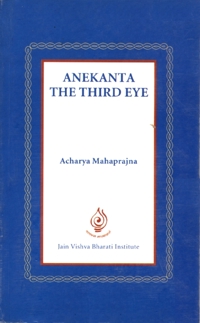
Why were weapons made? Only to get to know others! The reason is simple: The fear that some third person will attack, will enter, will kill, or loot. The main cause thus was security. As and when attention is diverted to others, then danger begins to loom. Man's nature itself has become such that he forgets the 'sva' or himself and concentrates more on 'par', that is others. He does not know the value of the word 'sva'. He places far greater importance on the word denoting circumstances. To hide his failings man has an infallible weapon and that is to blame it on circumstances. This weapon has been given considerable importance. If you ask those who made the atom bomb as to why they did so, they would turn around and say it was circumstances that made them do it, or else they would not have.
Man, today, has become a victim of circumstances. He has given all the importance to it and it alone. This, in effect, means that man gives more importance to the peel than to the fleshy fruit within. The peel becomes everything to him.
Any person who thinks along the lines of anekanta cannot negate the importance of circumstances. Circumstances do have a value but only as much as a peel has. No sensible man eats only the peel. He looks for the flesh within. Is not the man hiding behind circumstances eating just the peel? He is giving it too much value, far more than it deserves. Circumstances influence man only when he is inclined to be influenced by them. Somebody is insulted. An angry reaction follows. Circumstances have been created. Circumstances cannot be rejected. But it must be understood that the insult produces anger only when the seed of anger is in man. But when the seeds of anger have been demolished then even a thousand insults cannot provoke him. In such people it is not easy to provoke anger. Any amount of effort taken to provoke anger may still be unsuccessful.
 Acharya Mahaprajna
Acharya Mahaprajna
